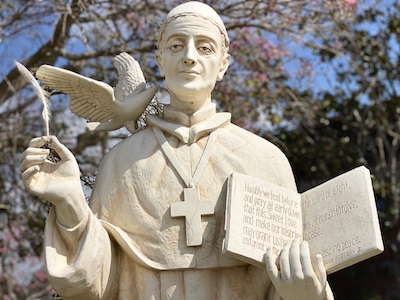The Sacraments Sacrament of Confirmation
The sacrament of confirmation is one of the seven sacraments of the Catholic Church. It is the sacrament by which a baptized person is sealed with the gift of the Holy Spirit and is strengthened in their faith. Through confirmation, a person is empowered to witness to the Gospel and to live their faith more fully.
The origins of the sacrament of confirmation can be traced back to the early Church, when the apostles would lay their hands on newly baptized Christians and pray for the outpouring of the Holy Spirit. This practice is still reflected in the rite of confirmation, which includes the laying on of hands by the bishop or priest and the anointing with chrism oil.
In the Catholic Church, confirmation is typically administered to young people in their teenage years, after they have received the sacrament of baptism and have reached an age where they are able to make a mature commitment to the faith. In some cases, adults who have not been confirmed may also receive the sacrament, either as part of their initiation into the Church or as part of their ongoing formation in the faith.
The rite of confirmation includes several important elements. First, the bishop or priest lays their hands on the head of the person to be confirmed and prays for the outpouring of the Holy Spirit. The person is then anointed with chrism oil, which is a sign of the outpouring of the Holy Spirit and of their incorporation into the Body of Christ. The person is also given a new name, which is typically the name of a saint, as a sign of their new identity as a confirmed Christian.
After receiving the sacrament of confirmation, the person is empowered to witness to the Gospel and to live their faith more fully. They are also given the grace to overcome the challenges and temptations of life and to grow in their relationship with God. The sacrament of confirmation is an important step in the life of a Catholic and is a sign of their commitment to the Church and to following Christ.
The ordinary ministry of confirmation is a bishop, although a priest can be delegated the authority to impart the sacrament on special occasions such as the Solemn Easter Vigil.

Confirmation
Choose a Saint Name
In the Catholic Church, it is traditional for a person to choose a saint's name when they are confirmed. This practice has its roots in the early Church, when Christians were often given a new name at their baptism or confirmation as a sign of their new identity as a Christian.